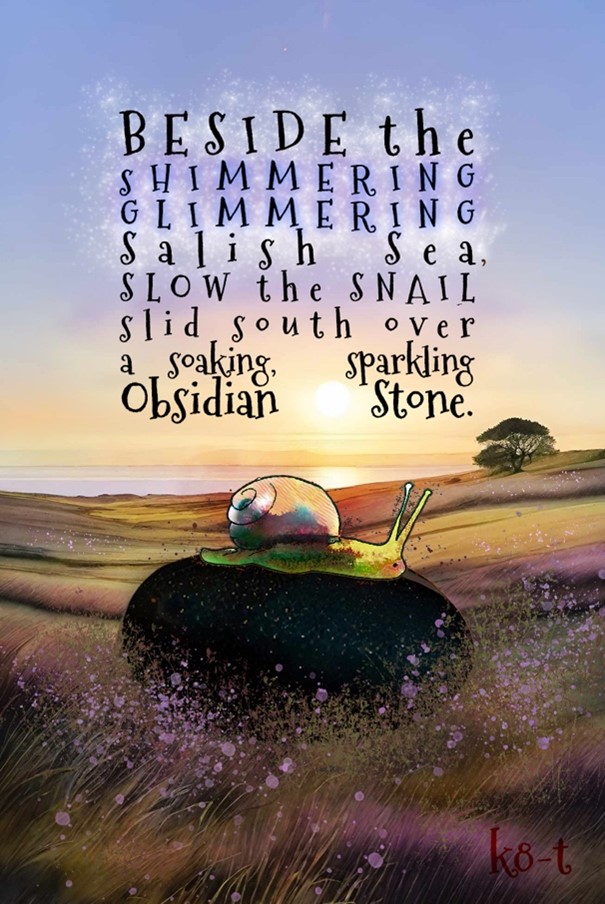
A reflection by community member, Kate Newman

Slow the Snail
“I have to be at work in 10 minutes!” What respectable working person has never uttered such a phrase while dashing across the street on a weekday morning in the rain?
What would happen if we dared to be slow? No, I am not suggesting that we be late for work, but– in that moment, as we find ourselves dashing, we take a deep breath and adopt a slow being. Perhaps we will still rush; we may even run down the sidewalk, but in that moment of necessary hurry, we will reject slow doing, slow action for slow being. We will still rush, but we will be slow about it.
I offer this discourse of Slow Ontology to echo scholars of Slow Ontology who see “beyond slowing the pace or volume of productivity to address underlying issues of ontology” (Jasmine B. Ulmer, 2016).
But first, a clear definition of ontology is the “nature of existence” (Oxford, 2024). For example, as a snail, Slow the Snail in the digital piece of Arts-Based Research I created above has direct access to a slow nature.
Though a snail may be hurrying or even sprinting over a wet rock in the sun, we humans would not perceive the Snail’s actions as hurried or rushed. This is because the very being of the snail is slow. A gentle, unhurriedness is the Snail’s nature. In the season of Lent, I am committed to trying to be like the snail, to try slow being. Holy Spirit, help me!
For thus said the Lord God, the Holy One of Israel:
In returning and rest you shall be saved;
in quietness and in trust shall be your strength.
Isaiah 30.15
------------------------------------------------------------------------------------
Artwork - An original artwork by Kate Newman
